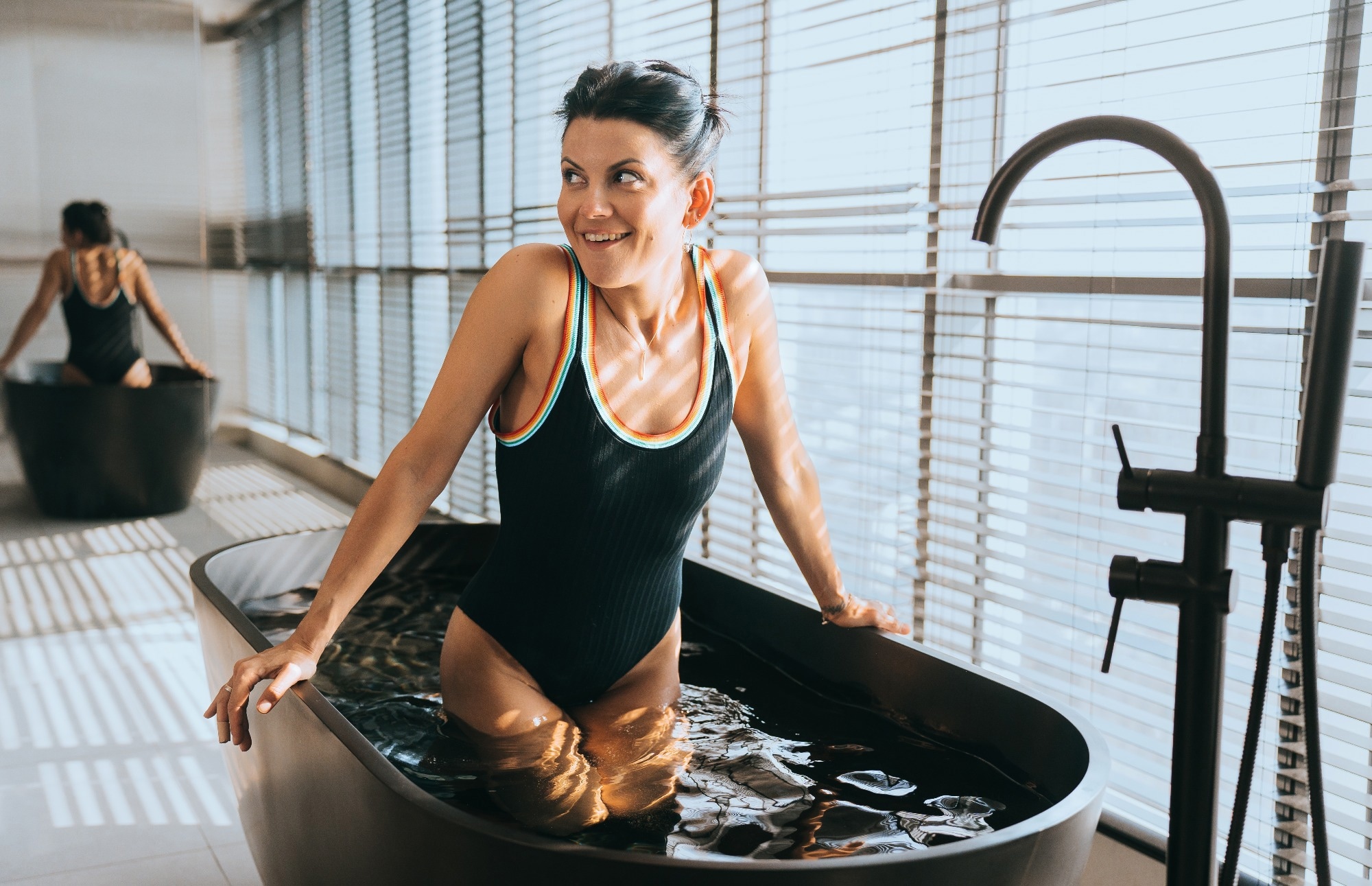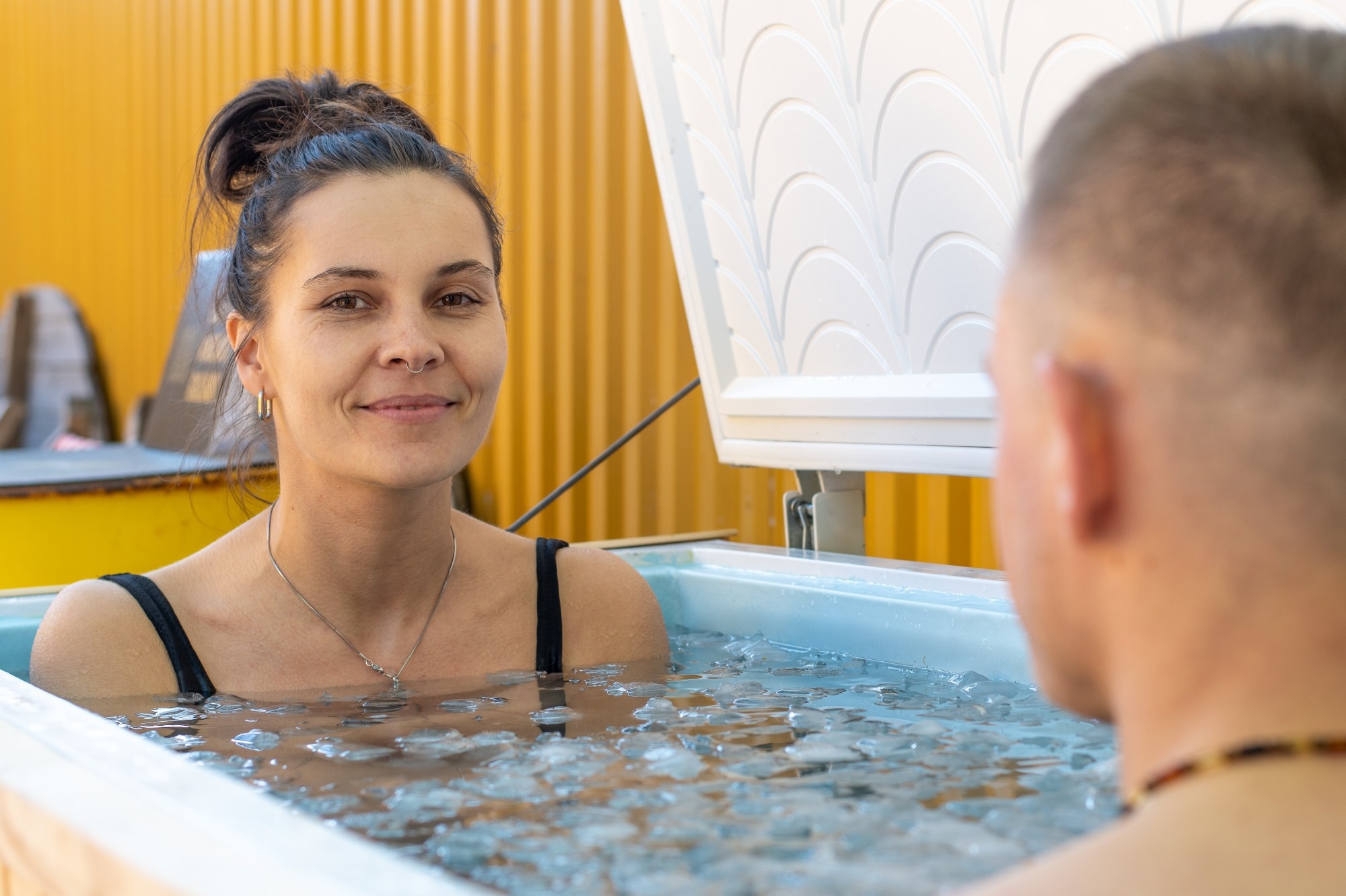Cold water therapy and its dermatological benefits
The science behind cold water exposure and skin health
Improving circulation and reducing inflammation with cold water
Cold water therapy as a tool for enhancing skin vitality
Integrating cold water therapy into your skincare routine
References
Further reading
Cold water therapy, an ancient practice now modernized, offers a refreshing path to dermatological wellness. By constricting blood vessels and boosting circulation, it reduces inflammation and pore size, promoting collagen production for enhanced skin elasticity.
Cold showers and ice baths not only invigorate the skin but also aid in product absorption and soothe blemishes.
 Image Credit: iona didishvili/Shutterstock.com
Image Credit: iona didishvili/Shutterstock.com
Cold water therapy and its dermatological benefits
Cold water therapy, also known as hydrotherapy, has a rich history dating back to ancient civilizations, with the earliest written records around 3500BC.1-2 Influential figures like Hippocrates and Galen from Greece and Rome advocated the health benefits of cold water, including its use for treating various ailments.1-2 The practice was further studied and popularized in the 1700s by physicians such as John Floyer and James Currie.1-2
The "Water Cure" movement gained momentum in the 19th century, thanks to pioneers like Vincenz Priessnitz and the establishment of water therapy facilities by Drs. Wilson and Gully in Malvern, UK.1 The therapeutic use of cold has evolved over time, with figures like Wim Hof and celebrities embracing the practice for its numerous health benefits.1,2,9
Modern research supports the physiological benefits of cold water therapy, including improved circulation, immune function, and mental health. Specifically for skin health, cold water therapy has been shown to reduce inflammation, stimulate collagen production, and regulate sebum production, leading to improved skin elasticity, reduced pore size, and a healthier complexion.1-3
The science behind cold water exposure and skin health
Cold water baths are highly demanding physiological states that expose the entire body to extremely low temperatures. However, people used to these practices, such as cold water swimmers are able to adapt to the cold to varying degrees through prolonged exposure.3
When exposed to chilled waters, the metabolic rate in the body increases significantly (by 350%) to generate heat and maintain the body's core temperature.4 This is accompanied by a substantial rise in plasma noradrenaline and dopamine concentrations, which play key roles in the body's stress response and mood regulation.4
Localized cold exposure leads to a reduction in tissue temperature, affecting blood flow, cell swelling, metabolism, and neural conductance velocity.4 At the cellular level, cold can impair contraction kinetics in muscle and reduce the rate of excitation–contraction coupling.4
This practice significantly enhance body health, especially the skin, by balancing sebum levels, reducing acne and blocked pores, and releasing norepinephrine to modulate sebum production.5
It boosts blood circulation through vasoconstriction and subsequent vasodilation, improving nutrient and oxygen delivery to the skin, reducing inflammation, and imparting a fresh glow.5
It promotes collagen production, counteracting stress factors that adversely affect its synthesis, helping reduce wrinkles and maintain skin firmness.5-6 Cold water immersion also strengthens the immune system, and stimulates lymphatic drainage, reducing puffiness and swelling for a more youthful appearance.5
Improving circulation and reducing inflammation with cold water
Cold water immersion has been recognized for its ability to enhance circulation and reduce inflammation through a series of cellular and molecular mechanisms.
When the body is exposed to cold water, it enters a state of "survival mode," working hard to maintain core temperature, which stimulates increased blood flow circulation. This process can lead to a more efficient circulatory system over time, beneficial for conditions like high blood pressure or diabetes.7
The cold induces vasoconstriction, directing blood to the core and vital organs, enriching it with oxygen and nutrients.7 As the body warms up, vasodilation occurs, allowing the oxygenated blood to return to the tissues, reducing inflammation and alleviating muscle soreness.7
At the molecular level, cold water immersion can interfere with the brain's perception of pain by dulling nerve transmission.8 Post-exercise cold-water immersion (CWI) is a popular recovery modality that accelerates recovery by reducing inflammation, muscle damage, and fatigue.8 It is thought to enhance the quality of subsequent training sessions by improving recovery.8
The short-term benefits of CWI, such as faster recovery of muscle strength and reduced perception of fatigue, are primarily mediated by local vasoconstriction and increased hydrostatic pressure.8 These factors decrease metabolic activity, alter hormonal responses, and reduce limb blood flow, which can influence the infiltration of immune cells, thereby reducing potential local inflammation.8
 Image Credit: Michele Ursi/Shutterstock.com
Image Credit: Michele Ursi/Shutterstock.com
Cold water therapy as a tool for enhancing skin vitality
Cold water therapy, a practice that includes cold showers, ice baths, and cryotherapy, has been increasingly popular for enhancing skin vitality and overall health. A real-life example of its application can be seen in the routines of wellness advocates like Wim Hof, known as "The Iceman".9
The physiological response to cold water, such as vasoconstriction followed by vasodilation, helps to deliver oxygen and nutrients to the skin, making the complexion appear more radiant and healthier.7
This process also aids in reducing puffiness and swelling, particularly in the facial area, contributing to a more contoured, youthful appearance.7 Moreover, the release of endorphins during cold exposure enhances mood and can improve mental resilience and focus, which indirectly benefits skin health by reducing stress-related skin issues.7
Integrating cold water therapy into your skincare routine
Cold water therapy can be integrated into your skincare routine through several simple techniques. Starting the day with a splash of cold water on your face can awaken the skin, tighten pores, and prepare it for subsequent skincare products.10
Ice massages, using ice cubes wrapped in a clean cloth are very beneficial for skin health.10 Additionally, dunking your face in ice-cold water for short intervals can reduce puffiness, improve skin tone, and minimize the appearance of pores and wrinkles.10
Regular practice of cold water therapy, as recommended by experts, also involves controlled exposure to cold temperatures, starting with the limbs and moving towards the heart, and can be done through various methods such as ice baths, cold showers, or cryotherapy chambers.11
The benefits of this practice include improved circulation, decreased stress levels, and a boost in collagen production, all contributing to enhanced skin vitality and a reduction in signs of aging.11 However, it's important to approach cold water therapy with caution, especially for those with cardiovascular conditions.11
References
- Fullerton, L. (2022). The history of cold water therapy. Monk. [Online] https://shorturl.at/gjyF5
- Allan R., et al. (2022). Cold for centuries: a brief history of cryotherapies to improve health, injury and post-exercise recovery. European Journal of Applied Physiology, 122(5), 1153–1162. https://doi.org/10.1007/s00421-022-04915-5
- Knechtle B, et al. (2020). Cold Water Swimming—Benefits and Risks: A Narrative Review. International Journal of Environmental Research and Public Health, 17(23), 8984. https://doi.org/10.3390/ijerph17238984
- P Šrámek, et al. (2000). Human physiological responses to immersion into water of different temperatures. European Journal of Applied Physiology, 81(5), 436–442. https://doi.org/10.1007/s004210050065
- Australia P. (2024). Demystifying Cold Therapy: Are Ice Baths Good For Your Skin? Dr Pen Australia. [Online] https://drpen.com.au/blogs/news/are-ice-baths-good-for-your-skin
- Peake J. M, et al. (2020). The Effects of Cold Water Immersion and Active Recovery on Molecular Factors That Regulate Growth and Remodeling of Skeletal Muscle After Resistance Exercise. Frontiers in Physiology, 11. https://doi.org/10.3389/fphys.2020.00737
- 6 cold shower benefits to consider. (2023). UCLA Health. [Online] https://shorturl.at/buySZ
- Petersen A. C, et al. (2021). Post-exercise Cold Water Immersion Effects on Physiological Adaptations to Resistance Training and the Underlying Mechanisms in Skeletal Muscle: A Narrative Review. Frontiers in Sports and Active Living, 3. https://doi.org/10.3389/fspor.2021.660291
- Wim Hof Method. (n.d.). Wim Hof Method.[Online] https://www.wimhofmethod.com/
- The Chill Factor: Unlock the Skin Benefits of Cold Water and Ice. (n.d.). Pure & Cimple. [Online] https://shorturl.at/jvW68
- How to Integrate Cold Plunge Therapy Into a Wellness Routine. (n.d.). Renu Therapy. [Online] https://shorturl.at/mtATU
Further reading
Last Updated: Mar 12, 2024